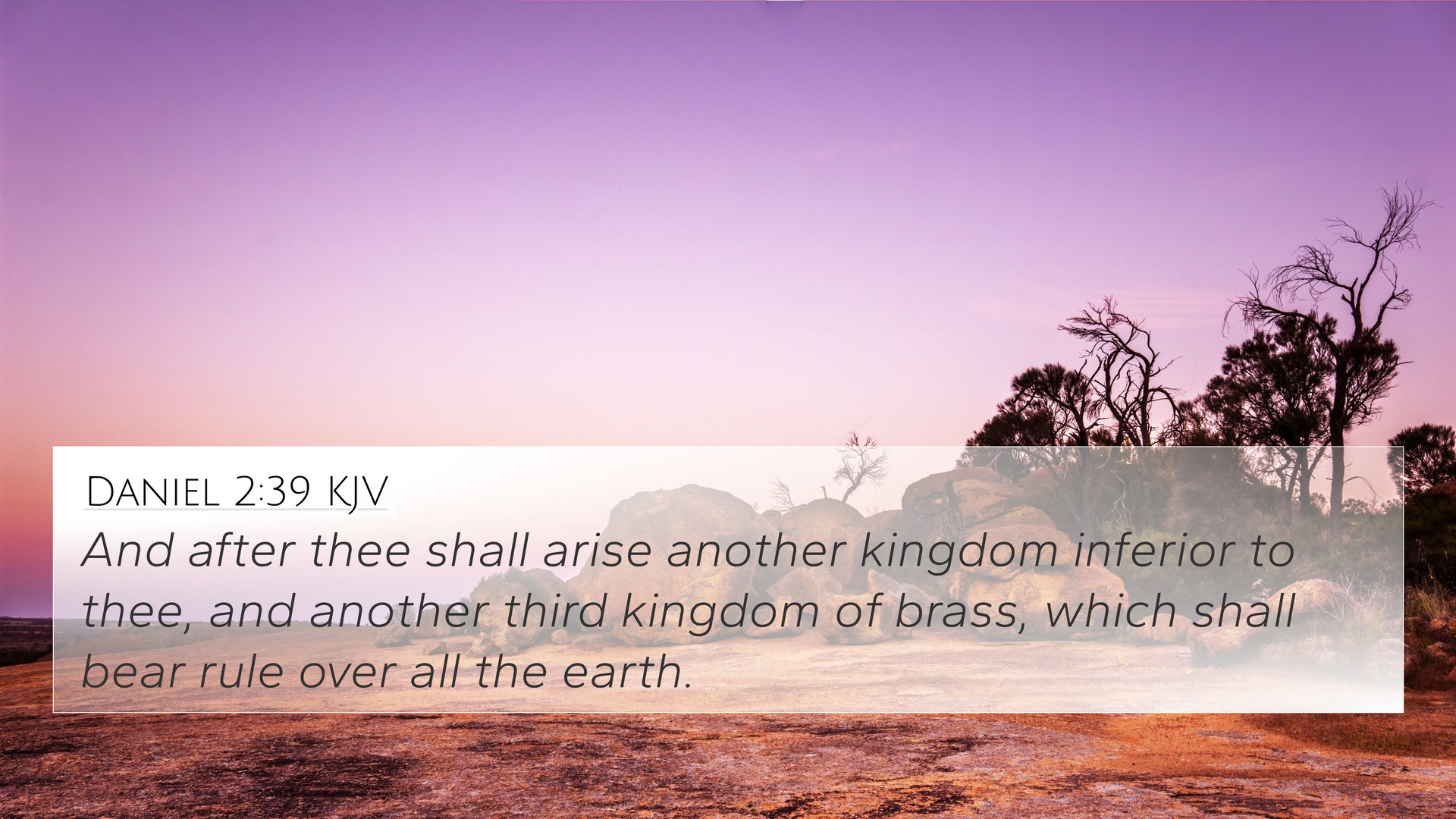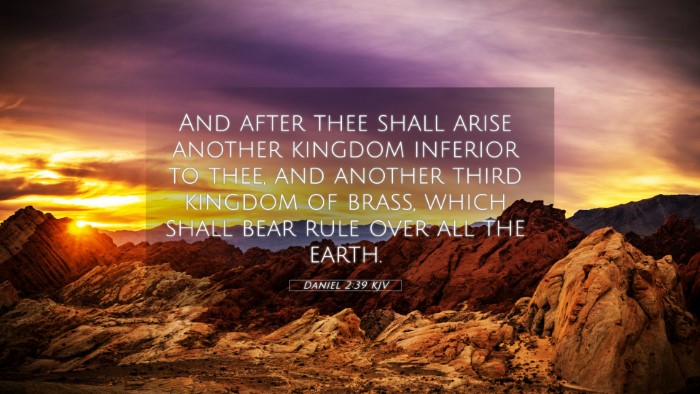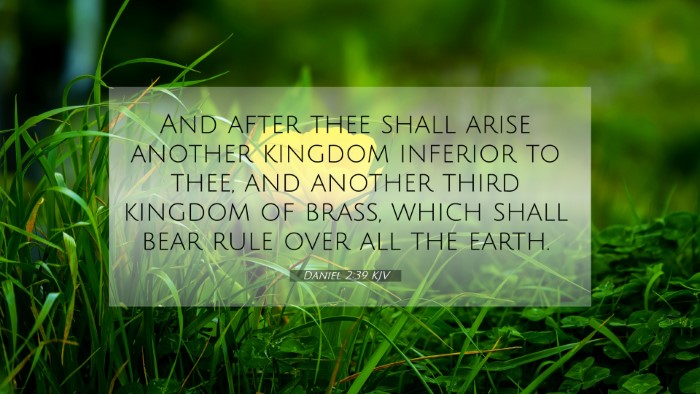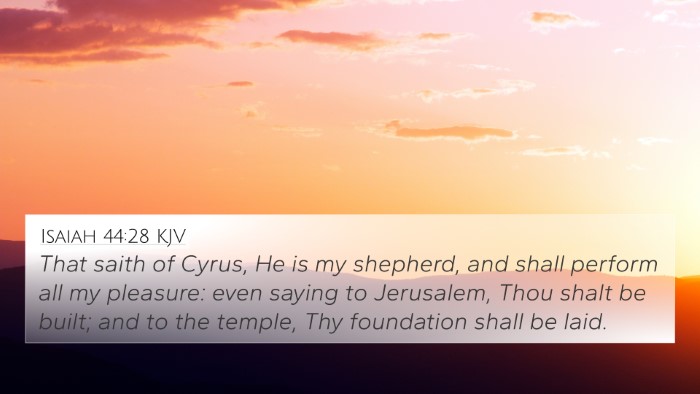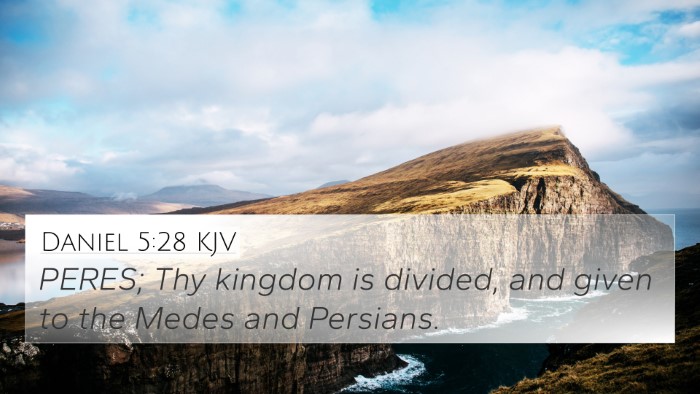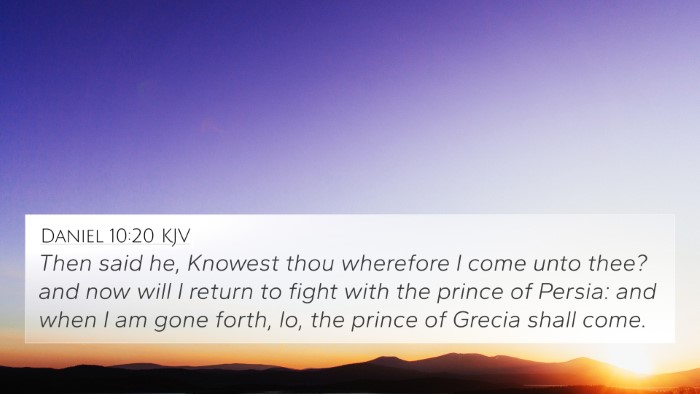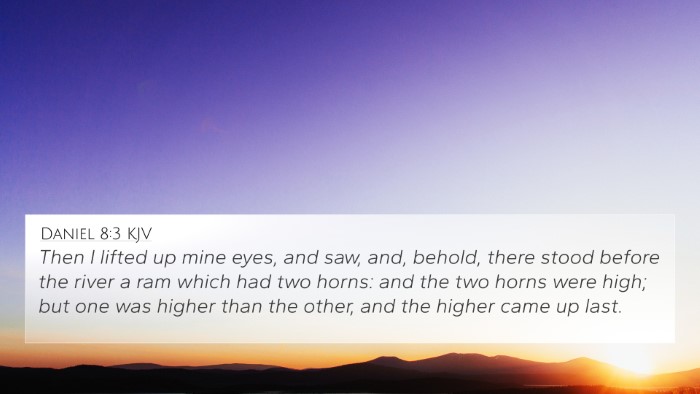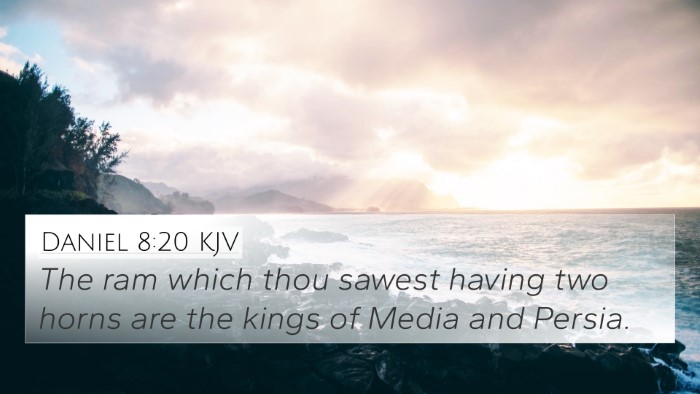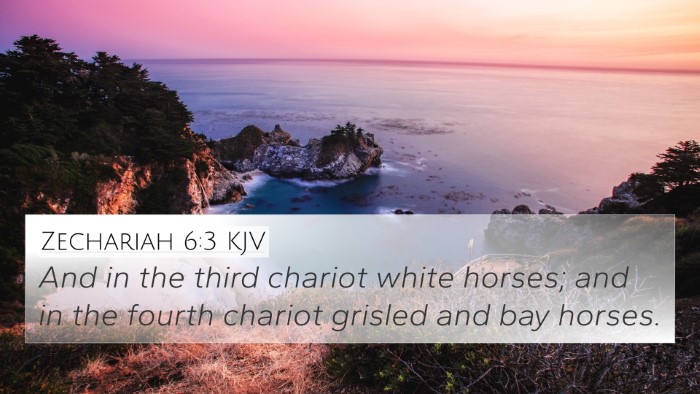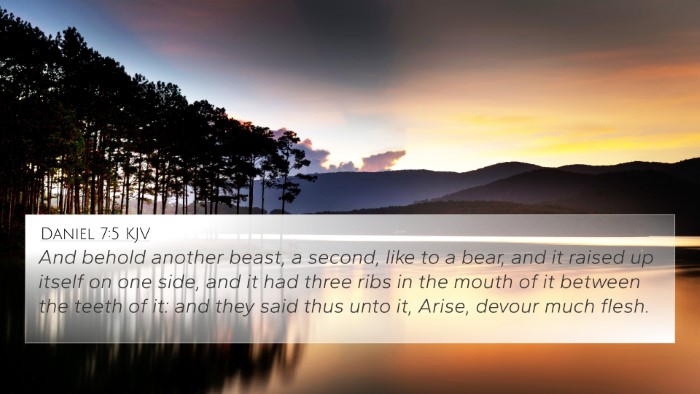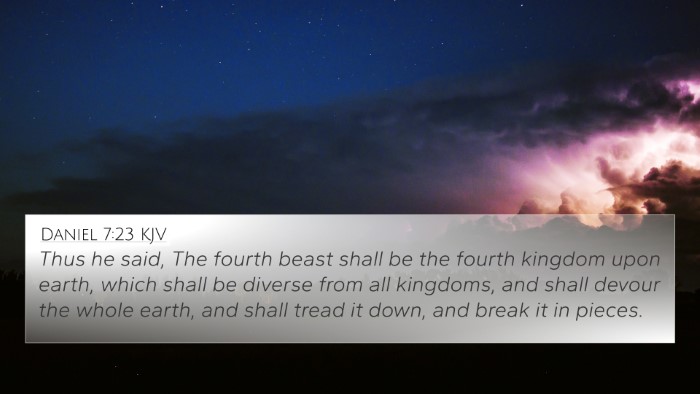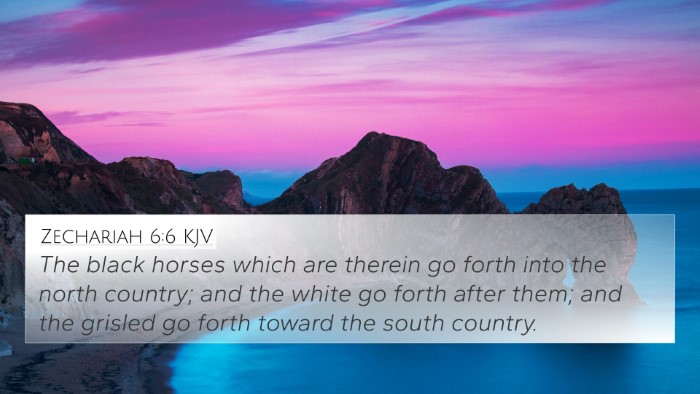Understanding Daniel 2:39: A Comprehensive Analysis
Bible Verse: Daniel 2:39 - "And after you shall arise another kingdom, inferior to yours; then another, a third kingdom of bronze, which shall rule over all the earth."
Summarized Meaning of Daniel 2:39
This verse is part of a larger prophetic vision given to King Nebuchadnezzar, interpreted by the prophet Daniel. The passage outlines a succession of kingdoms that will rise and fall, demonstrating God's sovereignty over earthly powers.
Interpretative Insights from Commentaries
-
Matthew Henry:
Henry emphasizes the certainty of the prophetic word, noting that the kingdoms referenced symbolize a decline in power and moral integrity. The progression represents divine judgement on human pride and self-sufficiency.
-
Albert Barnes:
Barnes focuses on the historical fulfillment of this prophecy. He identifies the kingdoms as Babylon, Medo-Persia, and Greece, underscoring how each kingdom succeeded the previous one in a specific prophecy-related context.
-
Adam Clarke:
Clarke discussions revolve around the implications of Daniel’s interpretation for the Israelites. He illustrates how the mention of "inferior" kingdoms reflects both a diminishing of power and the overarching control God maintains over history.
Connecting Themes in Scripture
Daniel 2:39 connects to various themes throughout the Bible, reflecting God's plan and sovereignty. Below are additional insights on how this verse relates to others in Scripture.
Bible Cross-References
- Jeremiah 27:5-7: Illustrates God's authority over nations and the divine purpose behind their rise and fall.
- Isaiah 46:10: Affirms God's role as the one who declares the end from the beginning, highlighting His sovereignty over kingdoms.
- Revelation 17:10: Discusses the continuity of kingdoms throughout history, linking them to prophetic visions.
- Daniel 7:23: Further explains the nature of the fourth beast, symbolizing world kingdoms and their destruction.
- Daniel 8:20-21: Provides detail on the Medo-Persian and Greek empires, showing a direct correlation with the imagery of the statue in Nebuchadnezzar's dream.
- Luke 1:52-53: Reflects on God’s activity in overturning the powerful and exalting the humble, mirroring the themes in Daniel's prophecies.
- 1 Peter 2:13-14: Encourages believers to honor earthly authorities, acknowledging God's governance through them, similar to Daniel’s context of national power.
Exploring Thematic Connections
This verse provides rich opportunities for thematic study and inter-Biblical dialogue. The decline of earthly kingdoms sets a premise for understanding divine authority over temporal affairs.
Inter-Biblical Dialogue
Exploring connections between Daniel 2:39 and other verses fosters a deeper comprehension of Biblical themes:
- How God's sovereignty is declared across both Old and New Testaments.
- The role of kingdoms in prophetic scripture, as seen in the Gospels.
- Comparative studies of prophetic visions found in the writings of the prophets and the Apostolic teachings.
Tools for Bible Cross-Referencing
Using tools such as a Bible concordance and Bible cross-reference guide can enhance one's understanding and practical application of the themes seen in Daniel 2:39.
How to Use Bible Cross-References
When searching for connections between Bible verses, consider the following methods:
- Utilizing a Bible concordance to find related verses by themes, keywords, or topics.
- Engaging in cross-reference Bible studies to explore deeper meanings and contexts.
- Employing Bible chain references to understand thematic links over the course of biblical narratives.
Conclusion
Daniel 2:39 is more than a historical prophecy; it invites readers into a study of divine authority, the nature of kingdoms, and the unfolding of God's plan throughout time. Through robust cross-references and thematic studies, believers can appreciate the interconnectedness of Scripture and draw deeper insights from the Word of God.
